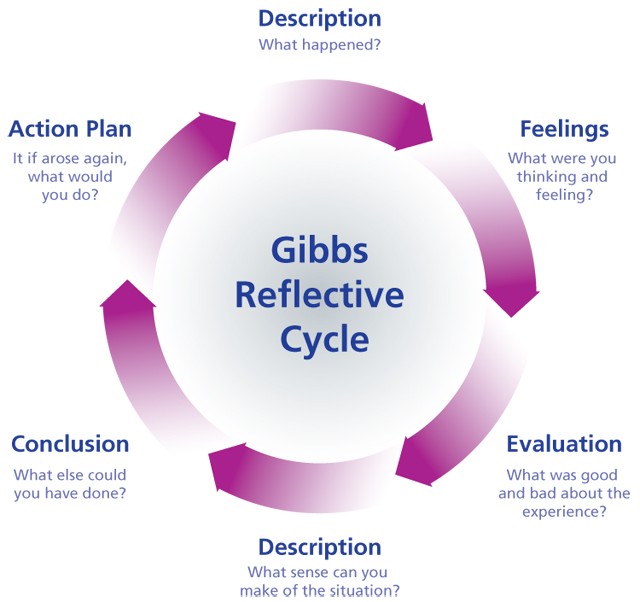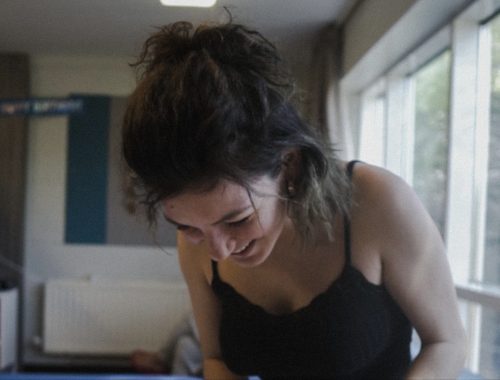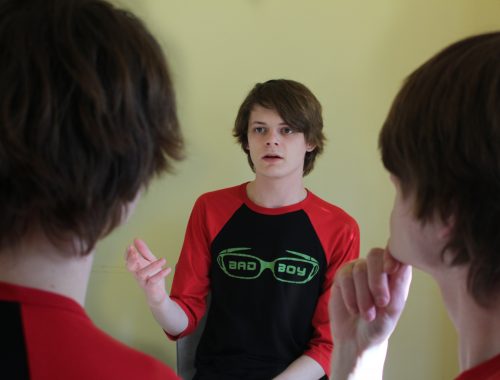
Finding the Right Balance: My Simulated Interview Experience
Despite having a range of valuable interview skills from past experiences, the AEL3001 simulated interview was the first time I was verily consulted about a job within my chosen career path and a sector which I am not only passionate about, but also plan to seek future employment in as a Music and Audio Production graduate, in aspiration of becoming a Sound Designer. Within this blog, I will be using the Gibbs Reflective Cycle Model[1] to analyse and consider my simulated interview experience, as well as the gained learning outcomes following the given peer feedback.

Description of Experience
Of course, as with most interviews, you never know what kind of questions will be asked and most importantly how they will be asked. In previous interviews, for jobs mainly in the retail industry, I learned some very important lessons in communication, poise and professionalism, but above all, fundamentally determined the significance of letting personality shine through when in an interviewing environment. This is imperative to both myself and the interviewer, as an employer will very quickly and easily tell apart the candidate who will simply show up to the job, and a candidate who will authentically be passionate about the role. M.J Yate[2], in his book ‘Great answers to tough interview questions’ stated “commitment is also a demonstration of enlightened self-interest. Your commitment expresses itself in your reliability, showing up is half the battle; the other half is your performance on the job”. For this reason, I adopted a mindset of not over analysing what I could be asked by the students in my group prior to the interviews but focus more on providing relevant and efficient answers on the spot which satisfy the interviewers’ particular interest as best as possible. Many of the questions involved a range of critical and technical analysis, which allowed my interest, knowledge and attentiveness to key aspects on the subject to really come through, and my ‘on the spot’ approach further pushed my ability of thriving under pressure, which is how I personally believe the best results come around, for every aspect in life.
Feelings and Evaluation
I personally felt quite comfortable going into the simulated interview due to the fact that I had previously worked with most of my group mates across other modules, which in a sense removed the importance and stress of first impressions and helped me focus on providing the most explanatory responses possible in a more collected manner. However on the other hand, getting interviewed by a group of people I don’t know may have possibly put me beyond my comfort zone and led me to providing somewhat divergent answers, as the basis of my assumptions on their expectation would in this case be eliminated. This may have proved both beneficial and detrimental, in that my responses could have the potential of either being too informative or too vague.
The peer feedback that was given to us following the simulated interviews helped me carefully evaluate the experience and accurately reflect on the skills I had expanded. Hearing my groups’ encouraging and affirmative opinions on my answers and approach to the interview was by far one of the biggest positives of the experience, and as indicated earlier, this approach was ultimately my biggest focus on the day. As stated by D. Boud, “positive feelings and emotions can greatly enhance the learning process; they can keep the learner on task and provide a stimulus for new learning”. [3]
Additionally, I also found that being the interviewer was very insightful, as it further enabled me to open up my mind to the possibility of many interview questions serving a single purpose of aiming to test a candidates skill of dealing with pressure in an already pressured environment. With this on board, I am able to adopt a conscious mindset in future interviews and remember to be affirmative in my set-out approach.
Conclusion and Action Plan
Finally, in this reflection of my experience, I have further considered areas of improvement within my responses and contemplated ideas which may have been executed better in terms of structure and relevance towards specific subjects. For example, I could have particularly examined the job description I was being interviewed for and prepared my answers to link back much more proficiently to key areas the employer was looking for within the job specification, such as relevant skills and qualities essential for the role. Through this, I have created a personal action plan for any future interviews, which focuses on a fair balance between my previous approach to the interviewing process, while also applying new key areas learnt from the day, as listed in my conclusive reflection. Therefore, by understanding crucial areas within the job, I am able to execute much more accurately the ‘on the spot’ approach and avoid any inconsistencies in my future interview experiences.
References
[1] Gibbs, G. (1998) Learning by Doing: A Guide to Teaching and Learning Methods. Oxford Brooks University, Oxford.
[2] Yate, M.J. (2014) Great answers to tough interview questions. London: Kogan Page.
[3] Boud, D., Keogh, R., & Walker, D. (1985) Promoting Reflection in Learning: A Model. Reflection: Turning Reflection into Learning. London Routledge Floor 2 LB1060 p.11
You May Also Like

Surprisingly Worthwhile
18 February 2022
Shocker, Tom also sucks at interviews!
18 February 2022
